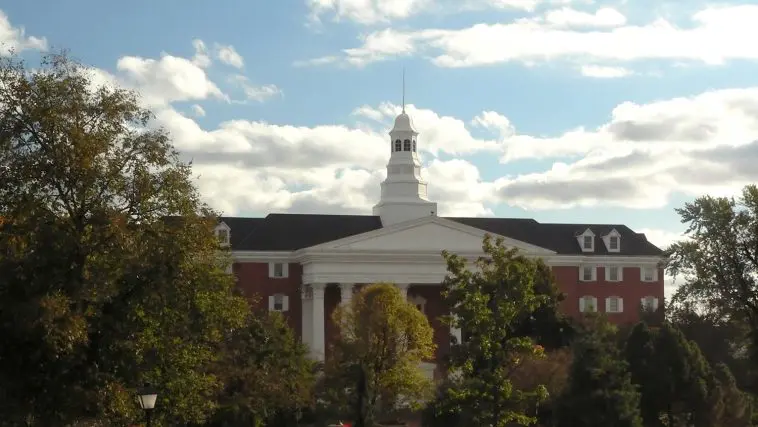[Originally published in 2014 as Academic Freedom and Christian Colleges]
On June 30, 2014, The Chronicle of Higher Education published an article by University of Pennsylvania English professor Peter Conn entitled, “The Great Accreditation Farce.” In that article, which Binghamton University history professor Adam Laats calls a “hatchet job,” Dr. Conn tries to argue that Christian colleges which require their faculty to sign a statement of faith should not be given accreditation. After all, he says:
Skeptical and unfettered inquiry is the hallmark of American teaching and research. However, such inquiry cannot flourish—in many cases, cannot even survive—inside institutions that erect religious tests for truth. The contradiction is obvious.
Now I have to admit I have some sympathy for that argument. In one of my blog posts, I highlighted a Christian university that does not make its faculty sign a detailed statement of faith: Anderson University in Anderson, Indiana. In that post, I said Anderson University “gets it” when it comes to what a university is all about — honest, open inquiry. In my view, a detailed statement of faith restricts the search for truth, and that’s not what a Christian university should be about. Certainly, a Christian university should be staffed by Christian faculty, but it should not restrict that faculty’s fields of inquiry with a detailed statement of faith.
Even though I have some sympathy for Dr. Conn’s argument, it is wrong on at least two counts.
First, while I would never teach at a university that requires a detailed statement of faith, this doesn’t mean such a university shouldn’t receive accreditation. After all, the purpose of accreditation is not to make sure the university is a bastion of skeptical and free inquiry. Instead, according to The U.S. Department of Education:
The goal of accreditation is to ensure that education provided by institutions of higher education meets acceptable levels of quality.
This has little to do with how much skeptical and unfettered inquiry is going on at the institution. Instead, it has everything to do with the quality of the classes, the depth of the material covered, and the standards to which the institution holds its students.
The other reason Dr. Conn’s argument fails is more important: Using his argument, very few (if any) secular colleges could be given accreditation, because they don’t allow skeptical and unfettered inquiry, either.
I know this from personal experience.
Before I started writing science textbooks, I was on the faculty at Ball State University. I had the second-largest research grant in the chemistry department, a long list of publications in the peer-reviewed literature of my field, and was a finalist for the university-wide Excellence in Teaching Award. However, I was denied the opportunity to seek tenure. Why? I don’t know exactly, but one of my colleagues (who was a supporter of mine and was part of the group that made the decision) indicated to me that it was because of my religious views and how they affected my research and teaching.
That didn’t surprise me at all. As we know from recent events, Ball State University is definitely not a bastion of skeptical and unfettered inquiry (see here and here). It was no different when I was there. While many fields of inquiry were welcomed at Ball State University, many other fields (such creation science) were strictly verboten.
Well, it turns out that I am not the only one who has experienced this lack of skeptical and unfettered inquiry at secular universities. In an article that rebuts Dr. Conn’s article, Stanton L. Jones, the Provost of Wheaton college, states:
Interestingly, when we hire colleagues away from nonreligious institutions, we often hear they feel intellectually and academically free here for the first time in their professional careers, because they are finally in a place where they can teach from and explore the connections between their intellectual disciplines and their religious convictions.
Wheaton College history professor Robert Tracy McKenzie provides a specific example of this. In a blog post about this issue, Dr. McKenzie says that he spent the first 22 years of his career at The University of Washington in Seattle. About that institution, he writes:
When it came to matters of faith, the university’s unwritten policy was a variation of “don’t ask, don’t tell.” It celebrated racial and ethnic diversity relentlessly but was never all that enthusiastic about a genuine diversity of worldviews, at least among the faculty and in the curriculum.
That is exactly what I experienced at Ball State University. After a while, this became too much for Dr. McKenzie, and he decided to accept a position at Wheaton College. Here is how he describes the way that change affected him on a professional level:
Wheaton is not a perfect place, nor did I expect it to be one when I came here. But I can honestly say that I have experienced much greater academic freedom at Wheaton than I ever did at the secular university that I left.
While I have never taught at a Christian college, this doesn’t surprise me. There is probably no college on earth that supports truly skeptical and unfettered inquiry. This includes both secular and Christian colleges. However, I suspect that most Christian professors find their inquiry efforts significantly more unfettered at a Christian college than at a secular one.
[Postscript: Since the time of writing this article, Dr. Wile became an ajunct professor of chemistry and physics at Anderson University.]







